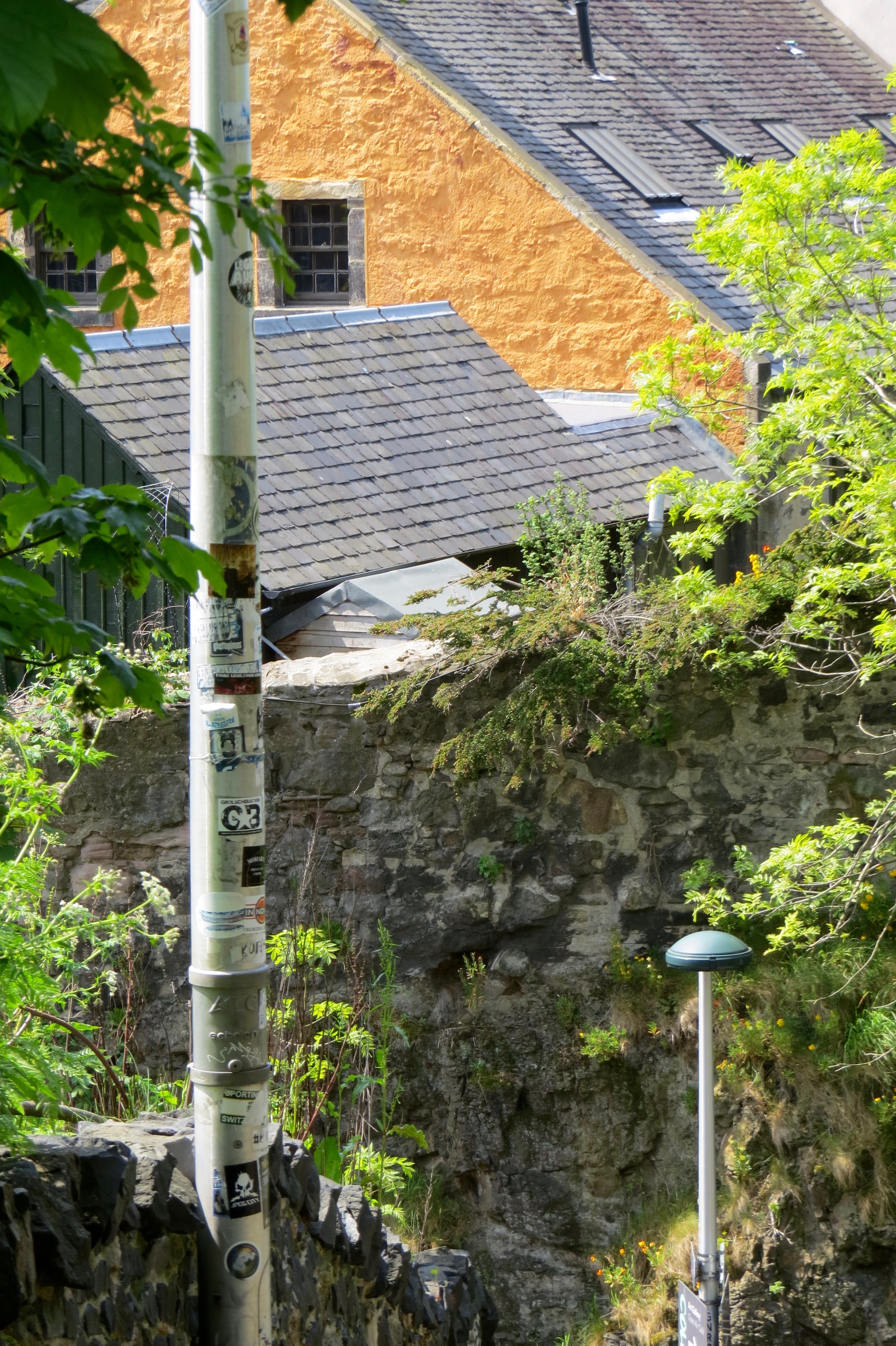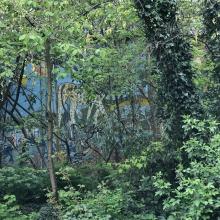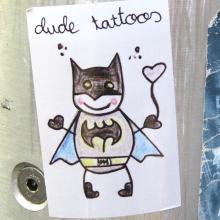
The lampposts of Calton Hill are a complete mess. Hundreds of small stickers have been added to them – some to an astonishing height (see foot of page) – by visitors from all over the world.
Rather than succumb to another fit of the Victor Meldrews, Spurtle has this weekend decided to go with the flow and try to understand – even enjoy – these often rather well-designed and enigmatic little messages.
Where in the world will they lead us?
We begin with Dude Tattoos, the nom d’aiguille of a highly decorated travelling tattoo artist ‘with heart’ from Berlin. You can see more of his work here on Instagram, or follow his adventures across other people’s skin on Facebook.
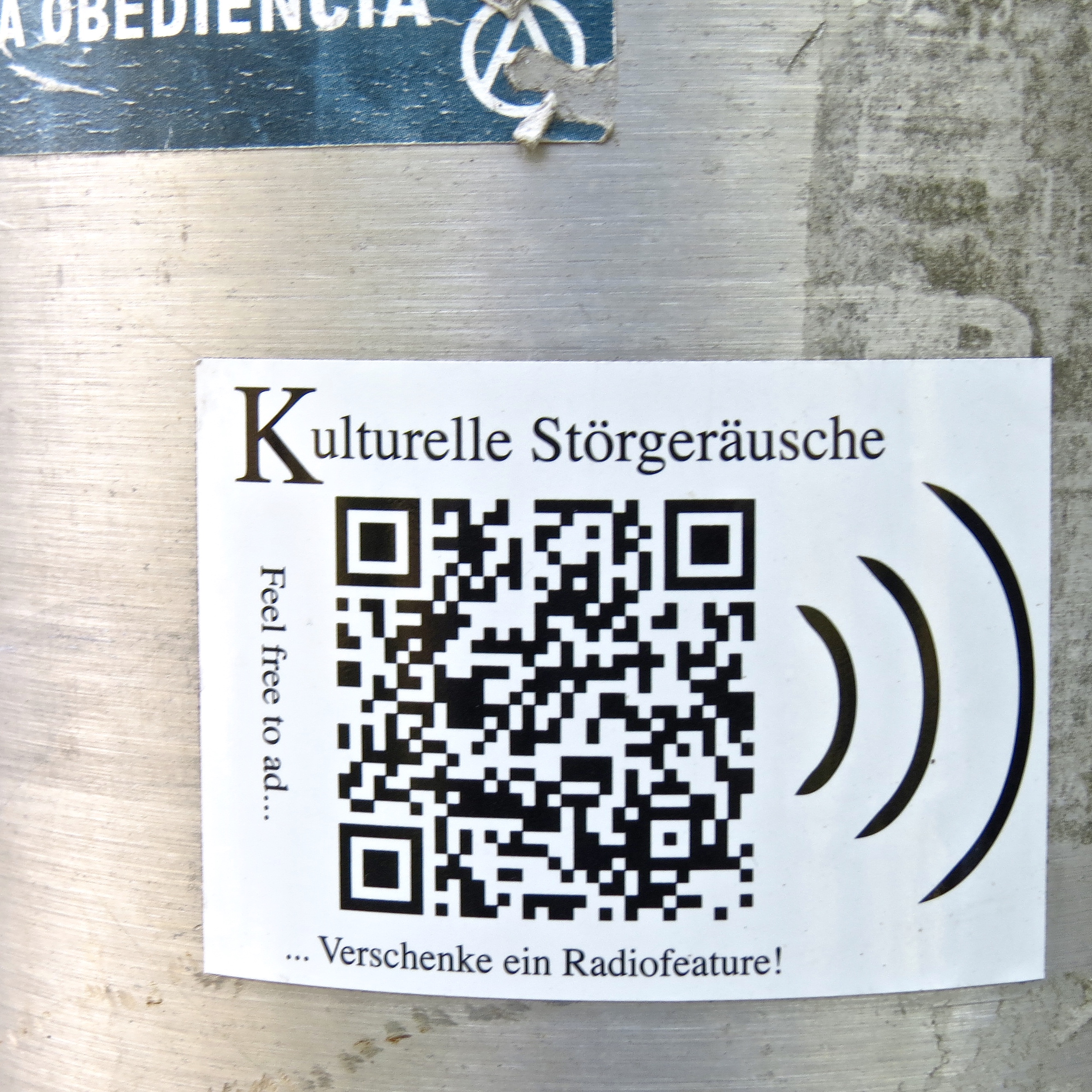
Also from Germany – this time from Bonn – are Kulturelle Störgeräusche (Cultural Noise). A team of journalists and authors, they describe themselves as a word and sound kitchen producing radio features, articles, webposts, and manuscripts. Apart from leaving stickers everywhere, they involve themselves in adult education, giving lectures and seminars and generally creating a ‘klang’. We think scanning this symbol with a smartphone would have led to an audio feature examining new possibilities for accessing radio drama through mobile electronic devices.
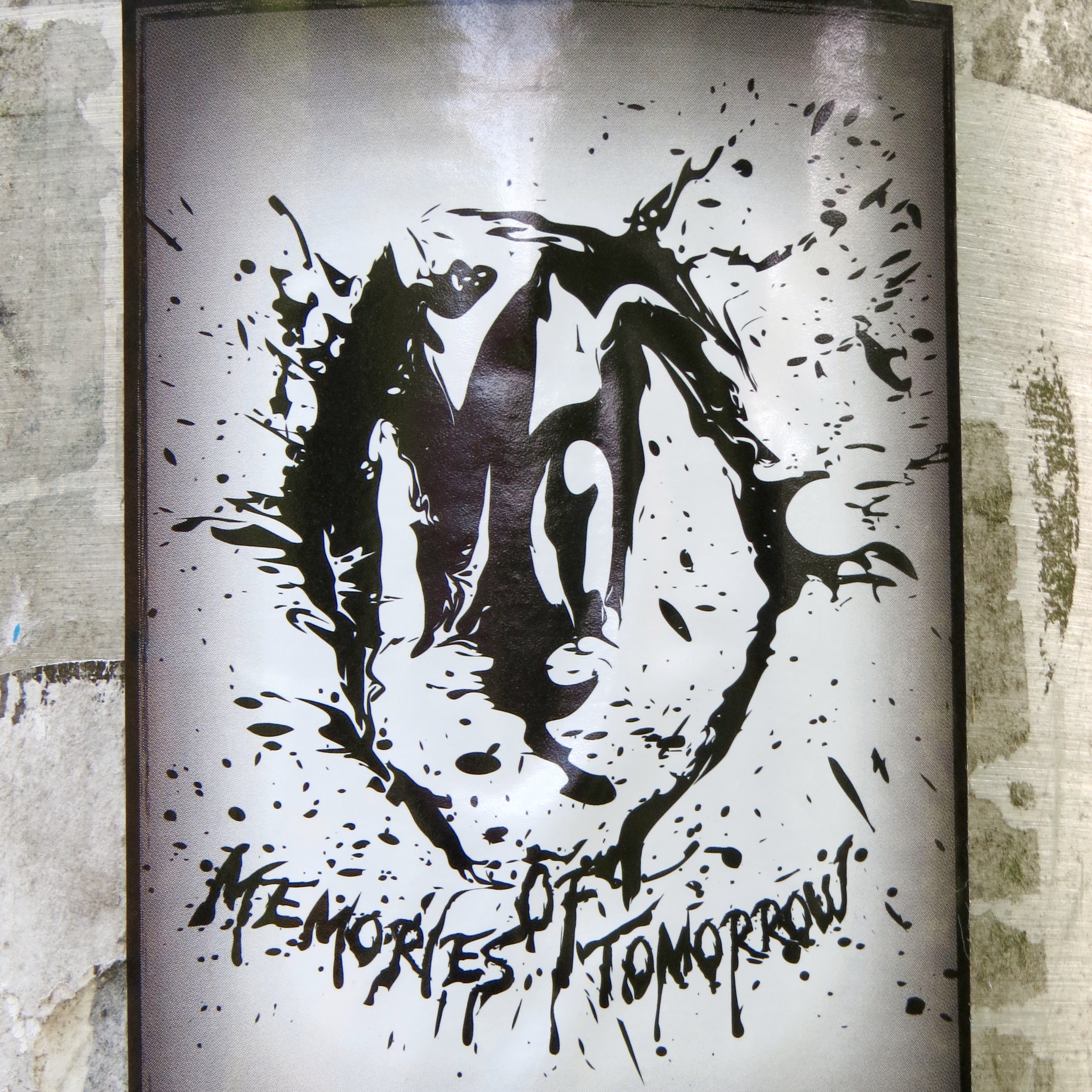

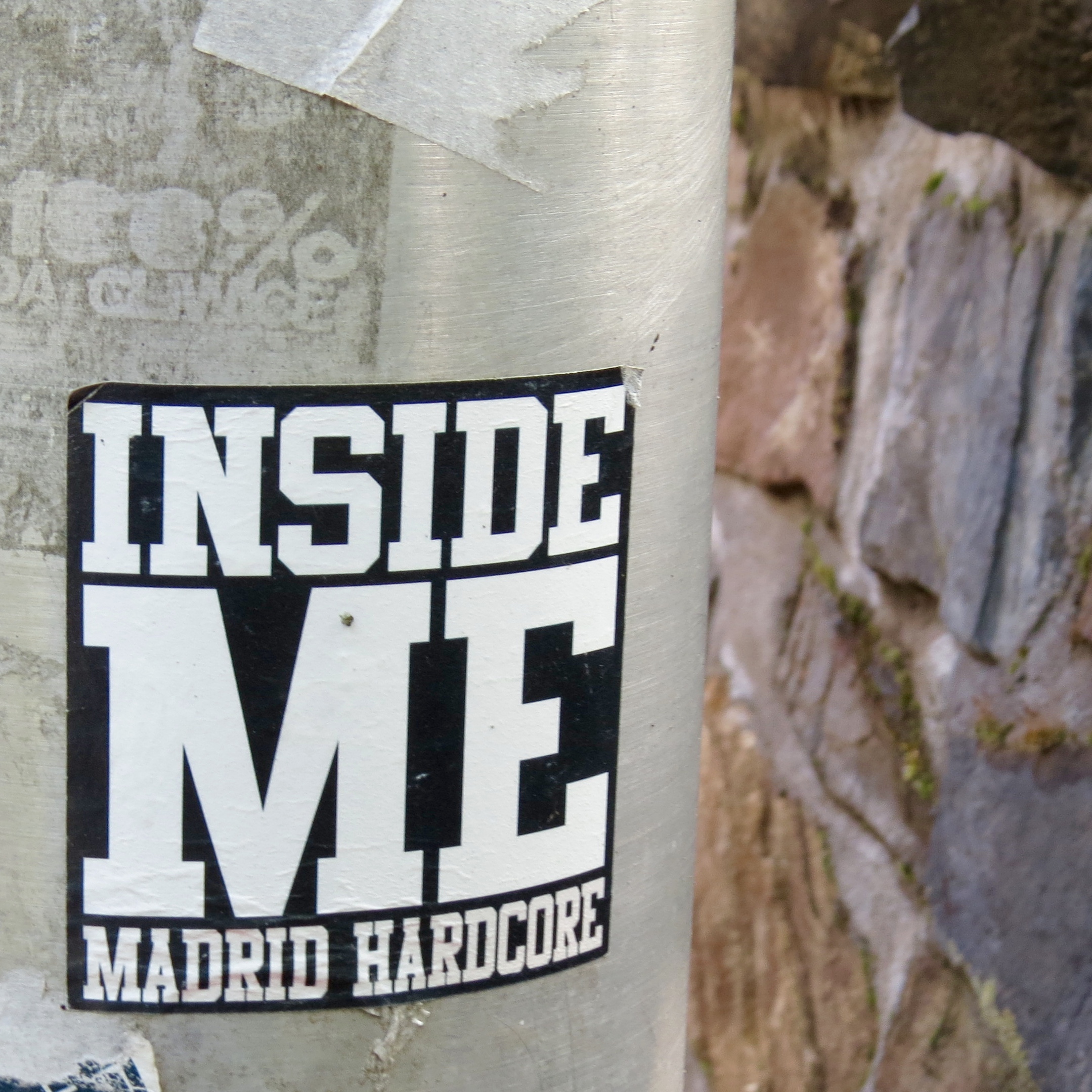

And now a musical interlude. Fans of squeaky clean German boy bands will probably enjoy following this link to an acoustic performance in 2012 by temporally challenged Memories of Tomorrow.
Go Down Records is an independent record label, begun in 2003 by musicians Leonardo Cola and Max Ear. Based in Savignano sul Rubicone, it has since released over 80 albums and singles, specialising in rockn’roll, stoner rock and garage rock by bands including Vibravoid, The Morlocks, Deadpeach and Gunash.
Inside Me are a Spanish band established in 1996. They’ve released two albums: Against Adversity (2006) and Tools of Fear (2010). Links to the website and downloadable music weren’t working this morning, but the last photo above is what the guys look like on the outside.
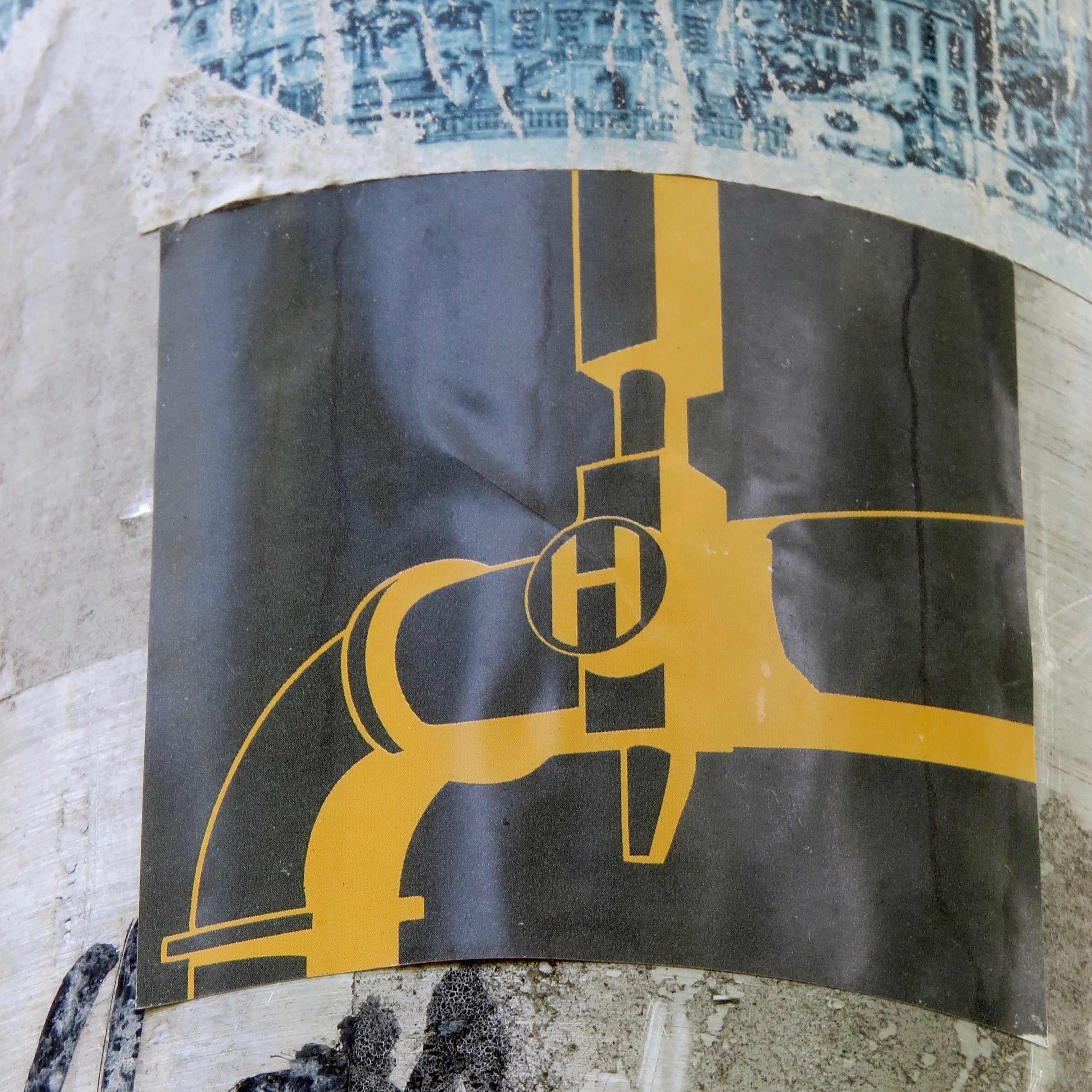
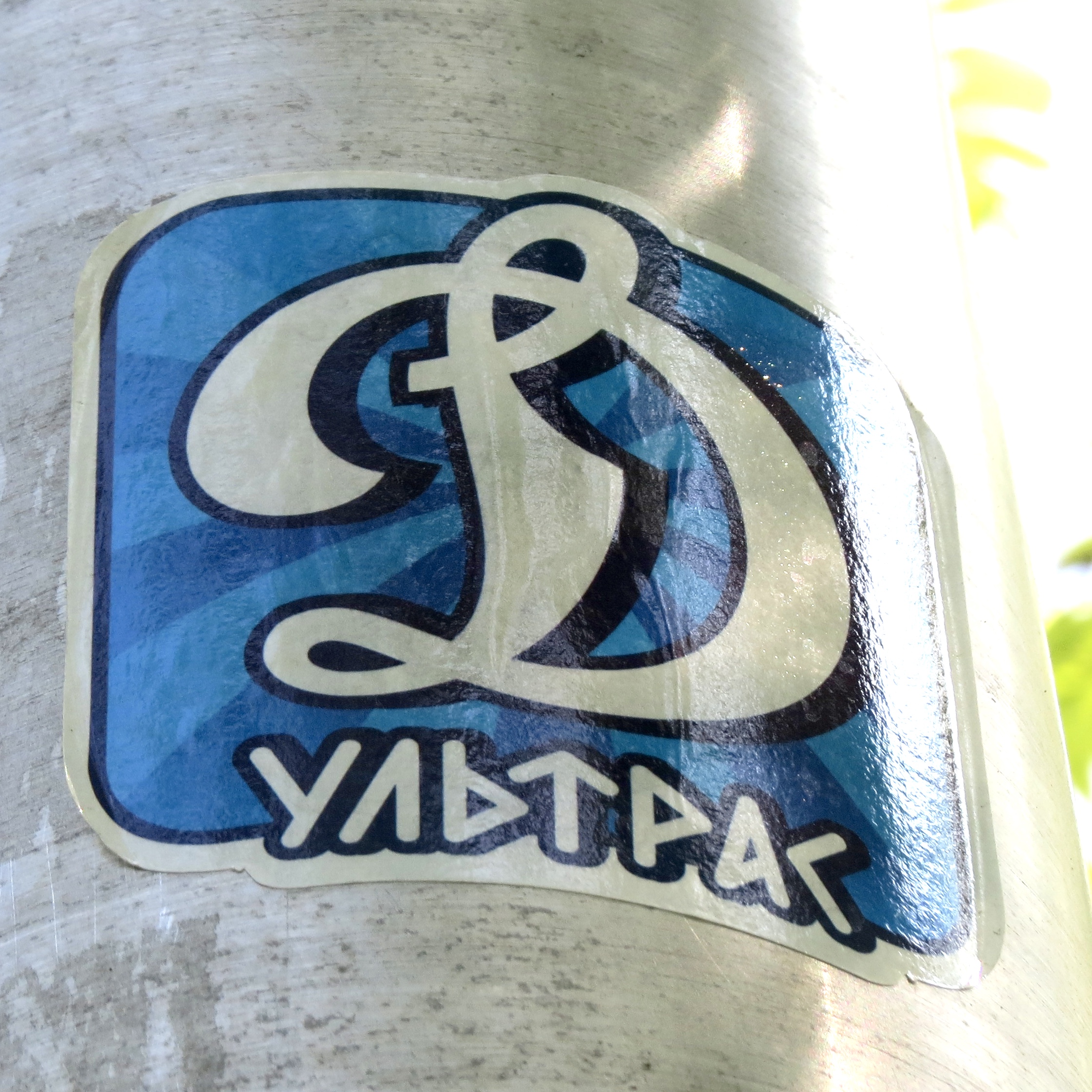
I have no idea what these refer to (presumably one is some kind of plumbing-related gang activity), and – unusually – Google throws up absolutely nothing for D yabtpac.
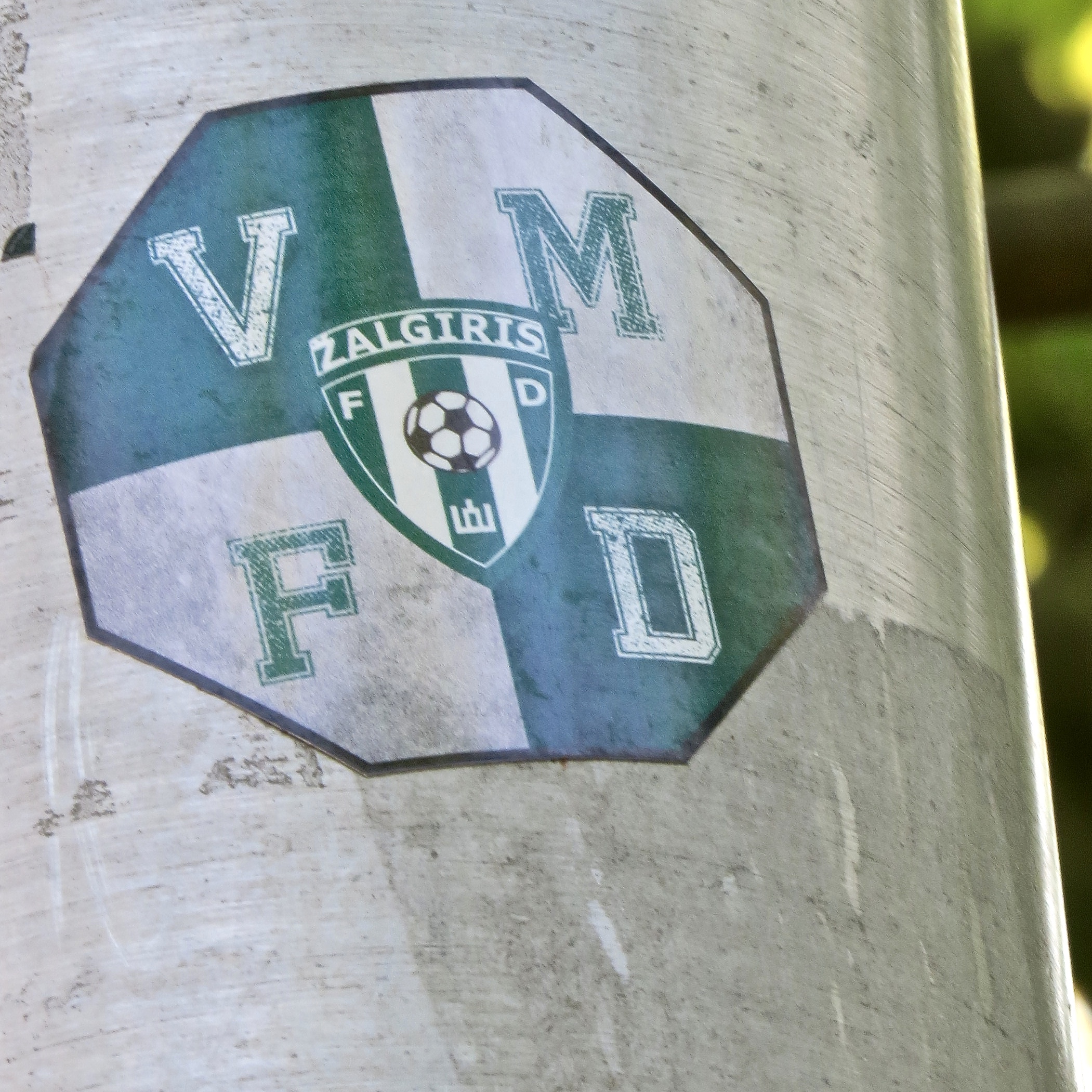
Zalgiris Vilnius are a top-flight professional football team from Lithuania, originally established in 1947. According to their website: ‘The club ceased its operations after the 2008 season due to financial problems. Team players, coaches and fans of the club (Pietų IV) who were seeking to save the name of Žalgiris detached from FK Žalgiris and on February 23, 2009, established VMFD Žalgiris’. Since organising themselves into a club in 1985, the website continues, ‘fans have been supporting the team while singing, waving flags and creating impressive choreography’.
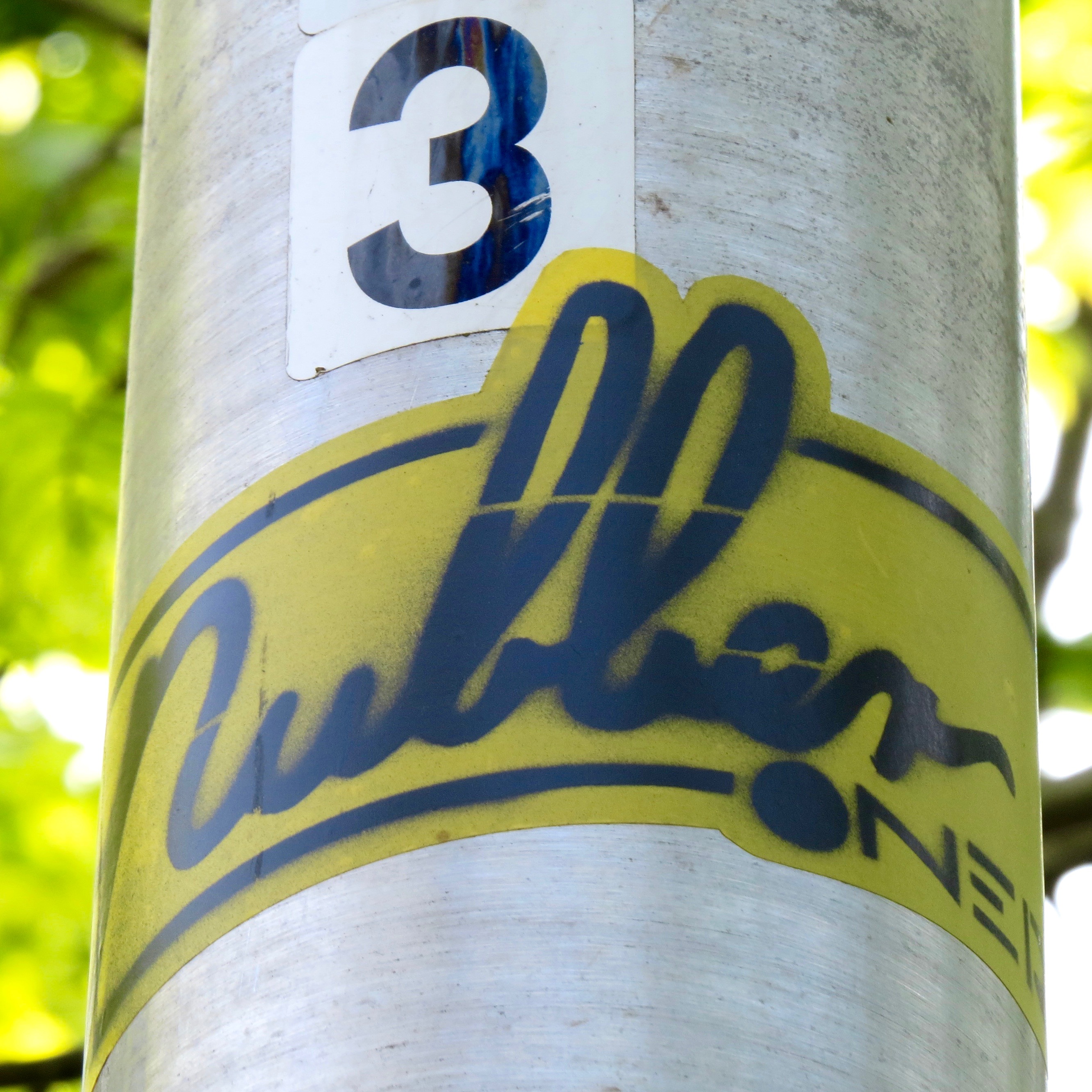
Am not entirely sure what this one’s all about, but the excellent online Urban Dictionary offers an interesting definition. It will be depressingly familiar to anyone who has grown up in the entertainment-lite provinces:
Nubber is actually older than any of these previous definitions. It was invented in Belper, Derbyshire, UK sometime in the 1980’s, possibly the late 1970’s.
It is used to describe a particular person who has done something a bit dodgy, like nicking a fag end from an ashtray or just being generally trampy.
It’s not as specific as Pikey, but has similar connotations.
It was also used in shouting competitions, where one person in the group would call somebody a Nubber and they would be answered with, ‘Did you just call me a NUBBER!’ until it ended up whoever could scream it the loudest got mucho Kudos.
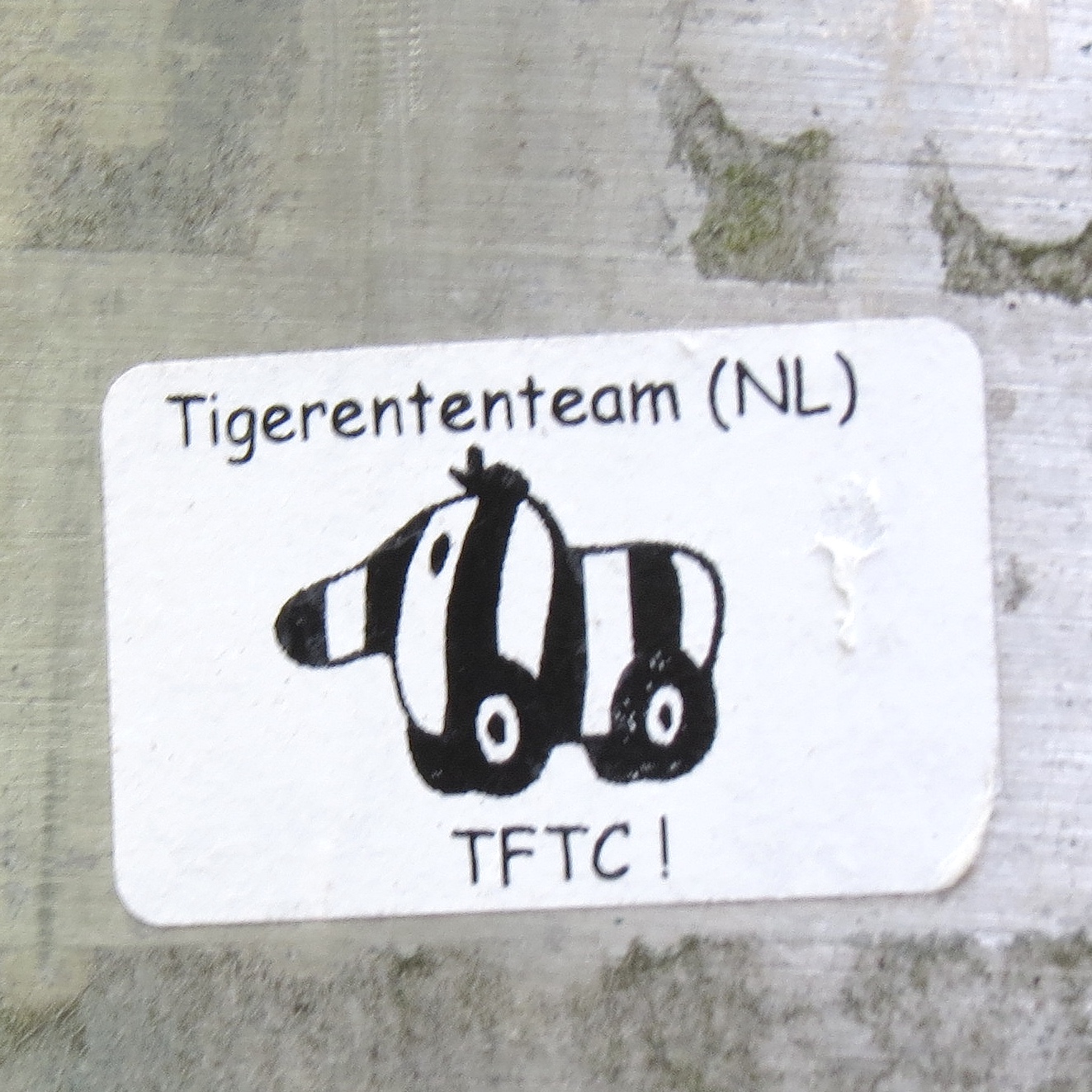
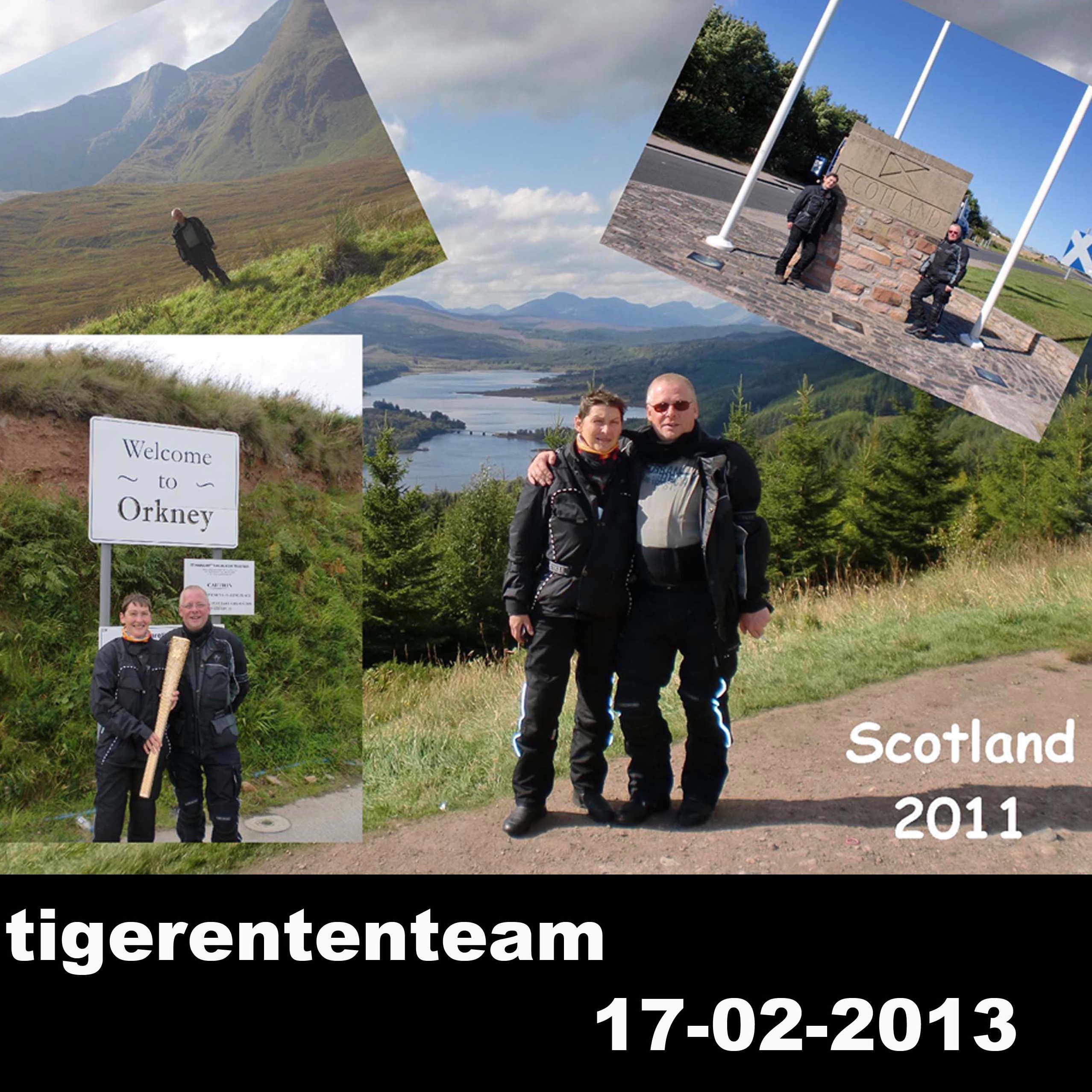
Tigerententeam (NL) is, we think, the calling card of a Dutch couple who travel the world by motorbike to indulge in their harmless pastime of geocaching.
This game is amusingly described by www.geocaching.com as:
… a high-tech treasure hunting game played throughout the world by adventure seekers equipped with GPS devices. The basic idea is to locate hidden containers, called geocaches, outdoors and then share your experiences online. Geocaching is enjoyed by people from all age groups, with a strong sense of community and support for the environment.
An alternative description is: ‘Grown up people using multi-billion dollar satellites to find Tupperware boxes in the woods.’
The basic of geocaching is that someone hides a treasure (geocache) somewhere in the nature. Preferably at a beautiful or special location. After the hide he puts the GPS coordinates on the internet so that other people can, by using these coordinates, discover the special location and find the geocache. If they can find the geocache, they write their name in the logbook and hide the geocache at the same spot. Finally they place a log on the internet sharing their experiences of finding the geocache.
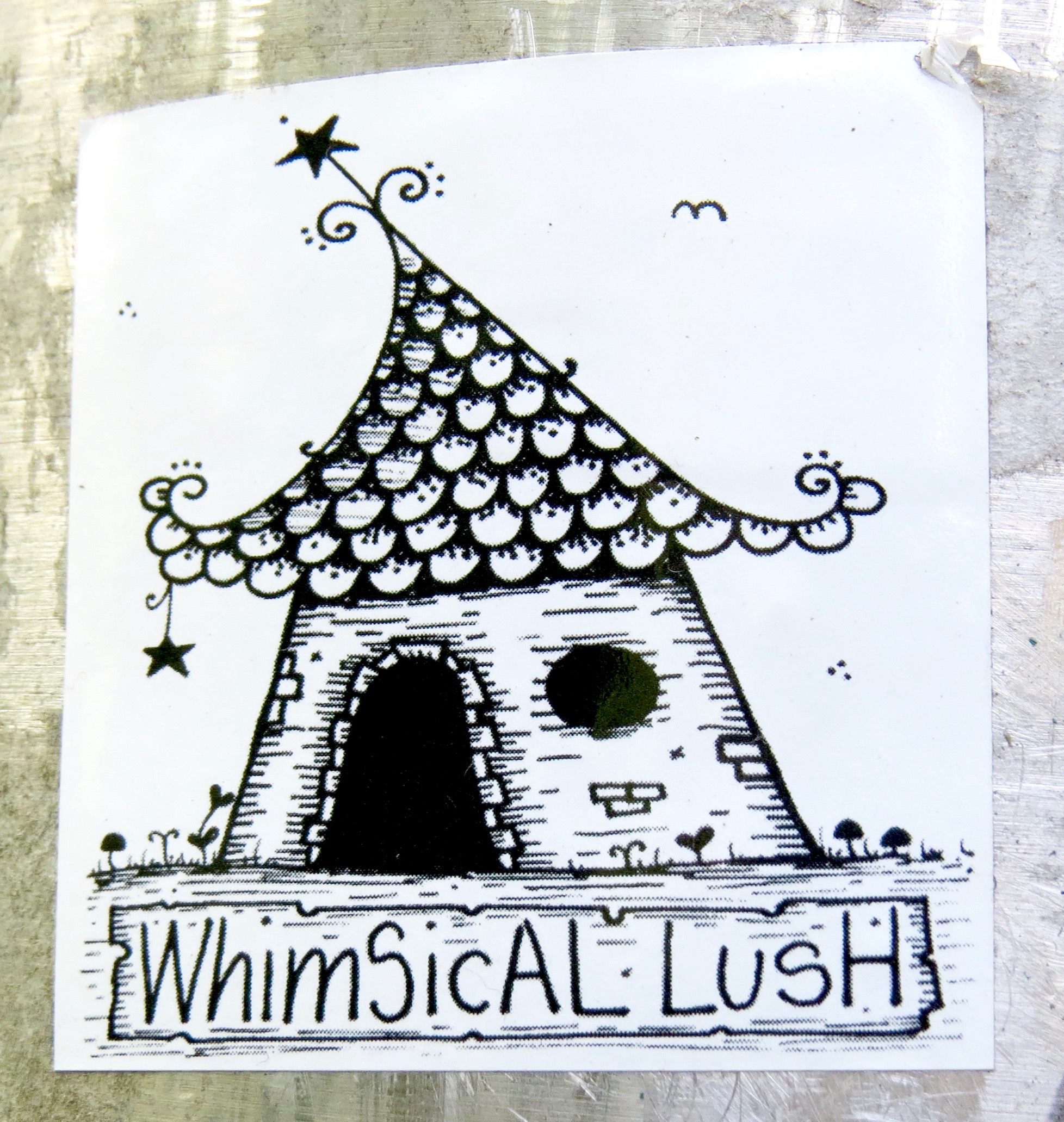
And finally we come to Whimsical Lush, or WhimSicAL LusH as it’s archly capitalised online. It appears to show what happens if you allow your house to drink alcohol, but is in fact the brand identity for Dundee-based artist and illustrator Suzanne Scott’s range of products.
Interestingly, the home page of her website features a recent commission – a commemorative plaque for the scientist D’Arcy Thompson. Six years ago, we featured Thompson, born in Brandon Street, in Issue 182.
